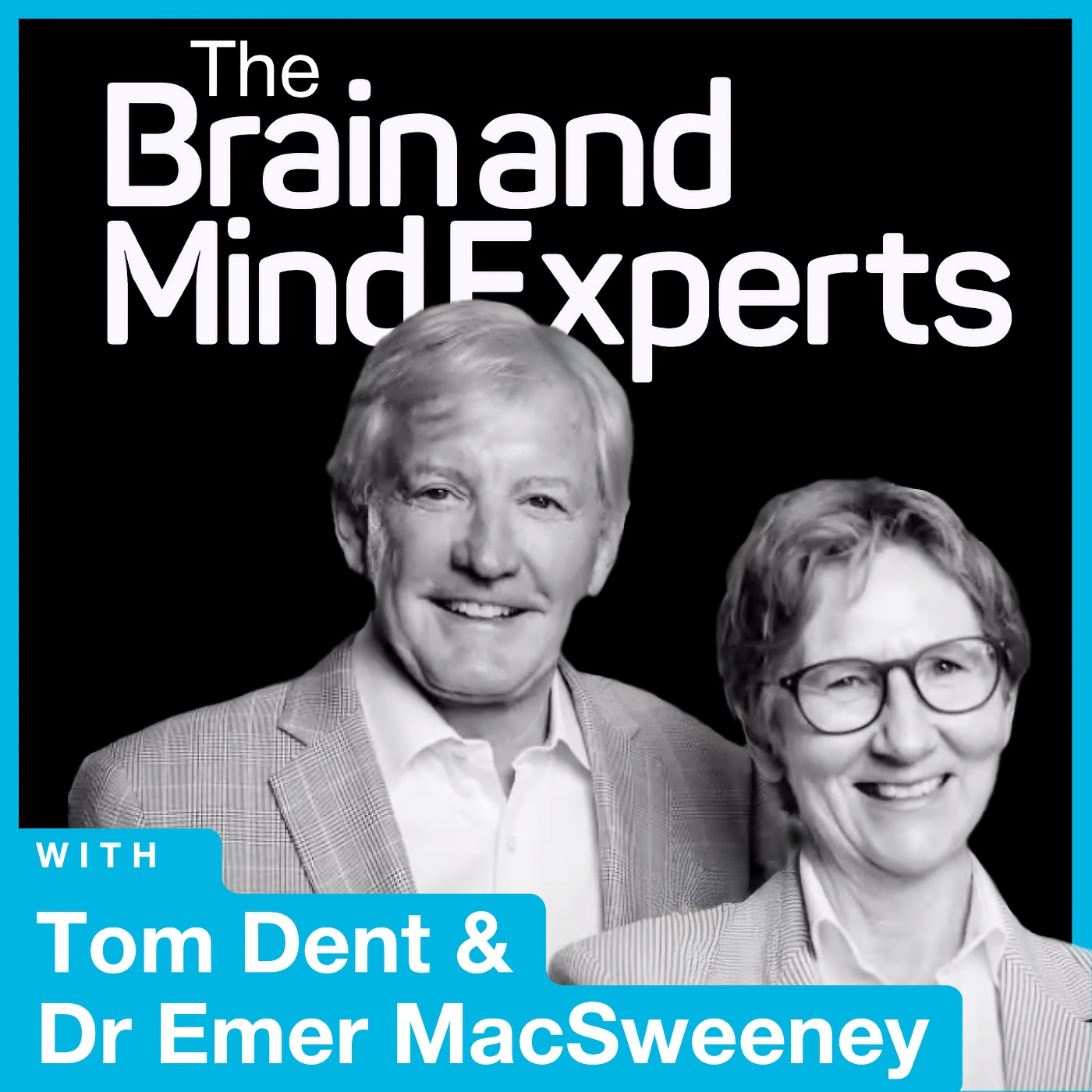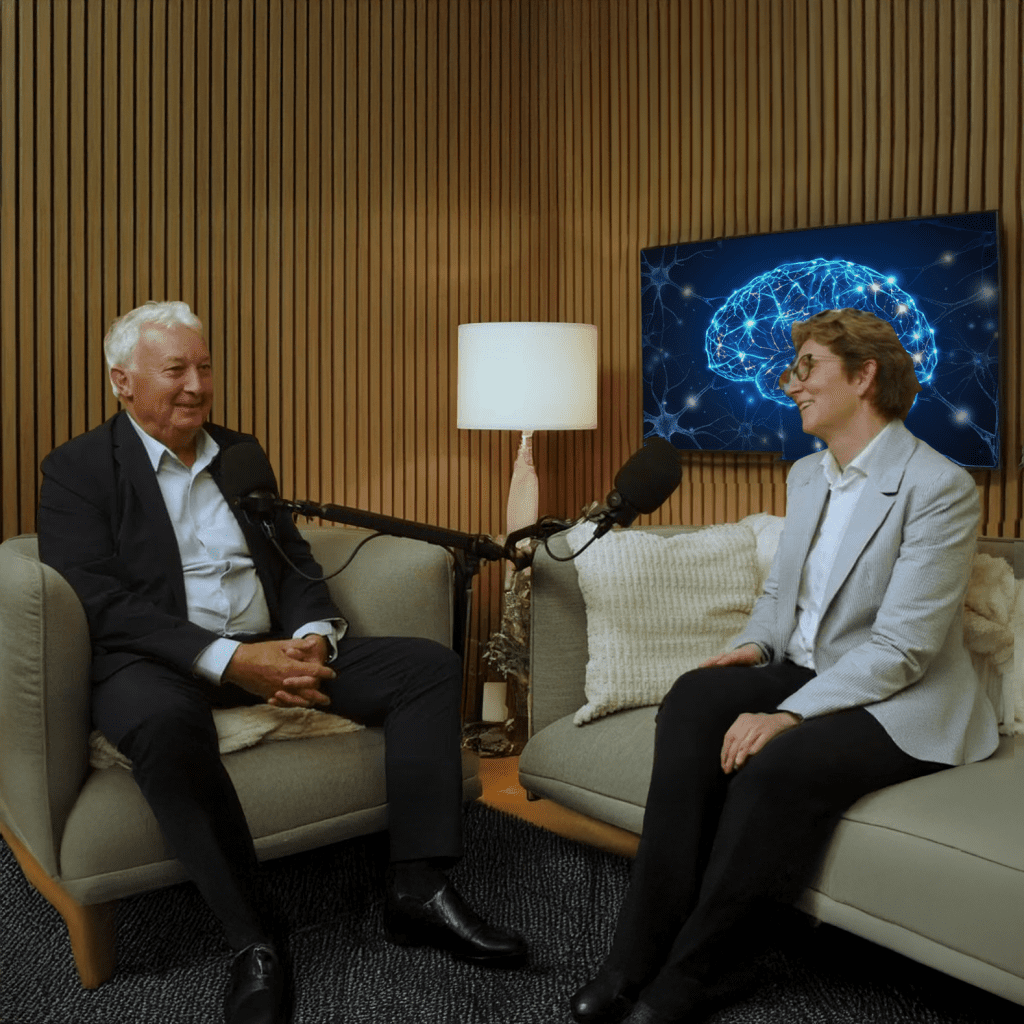The New Hope for Alzheimer’s
Dr. Emer MacSweeney, CEO and Medical Director of Re:Cognition Health, and Tom Dent, Executive Chairman of Re:Cognition Health, talk about the advancements in treating cognitive disorders. Over the past ten years Re:Cognition Health has been a worldwide leader in the clinical trials for development of new generation treatments to slow and ideally halt progression of Alzheimer’s disease. With the recent emergence, on the market, of the first of these revolutionary treatments, Re:Cognition Health is leading the way, globally, providing these treatments, safely, to yet more individuals, in the USA and UK.
What is the root cause of Alzheimer’s?
Like many neurodegenerative diseases, Alzheimer’s is most likely triggered, initially, by neuro-inflammation, which in turn triggers the abnormal accumulation and behaviour of two destructive proteins in the brain: amyloid and tau. These proteins gradually damage and destroy brain cells, particularly those responsible for cognition. This is why memory loss and cognitive decline are often the first symptoms of the disease.
What are the early signs of Alzheimer’s?
It’s normal to occasionally forget names or misplace keys, especially in today’s busy, distracted world. However, early signs of Alzheimer’s are different and often noticeable to the person experiencing them. The most common first symptom is short-term memory loss, such as forgetting details of recent conversations or events, unwittingly repeating one’ self, and having to make lots of lists and reminders.
Other early indicators include:
- Difficulty with numbers and calculations
- Using vague words instead of specific terms, as vocabulary subtly shrinks
- Struggling with reading comprehension, needing to reread material to follow a storyline
- Getting lost in familiar places due to visual-spatial challenges
- Subtle declines in planning and problem-solving skills, especially with complex tasks
- Changes in behaviour and personality, which develop gradually over time
These symptoms affect multiple cognitive domains and often appear subtly, but they signal a shift that’s different from normal aging.
What is the difference in dementia and Alzheimer’s?
Dementia is often misunderstood, but in simple terms, it’s an umbrella term for a group of symptoms affecting cognitive abilities. Much like saying you have a headache (which could have many causes), saying someone has dementia doesn’t explain the underlying reason.
Clinically, dementia means having cognitive impairment in two or more domains—such as memory, concentration, language, calculation, or spatial awareness—that are progressive and worsening over at least a year.
It’s important to distinguish dementia from mild cognitive impairment (MCI), which involves similar symptoms but is less severe and doesn’t significantly impact daily life in its early stages.
In short, dementia describes the symptom pattern, not the cause. There are many types of dementia, including Alzheimer’s disease, vascular dementia, Lewy body dementia, and others, each with different underlying pathologies.
Previous medications for Alzheimer’s have only treated symptoms. How are the two new breakthrough drugs different?
How are the new breakthrough drugs different from those in the past?
For years, Alzheimer’s treatments have only managed symptoms, helping dying brain cells function, temporarily. These symptomatic medications are like painkillers for cancer—they ease discomfort but don’t address the underlying disease. Eventually, as more brain cells are lost, these drugs stop working.
The game-changer is the arrival of disease-modifying treatments that aim to slow or stop the progression of Alzheimer’s by targeting its root cause.
Both of the newly approved drugs to treat Alzheimer’s belong to a class called monoclonal antibodies against amyloid protein. These drugs are designed to:
- Clear toxic amyloid plaques that accumulate in the brain
- Protect cognitive brain cells from further damage
- Slow down the death of brain cells, preserving cognitive function longer
Clinical trials, including over 9,000 doses administered across Re:Cognition Health centres, have shown promising results in slowing disease progression.
While these treatments are not cures, they represent a significant shift towards treating Alzheimer’s at its source, offering new hope for patients and families.
What to Know About Alzheimer’s Clinical Trials
Clinical trials play a critical role in advancing treatments for Alzheimer’s disease. Unlike standard care, these trials test new medications to ensure they are effective, safe, and work across diverse populations.
Key Facts About Alzheimer’s Clinical Trials:
- Free to Participate: There’s no cost to join a clinical trial. In fact, most UK trials offer reimbursement for travel and participation.
- Strict Eligibility Criteria: Entry is based on clinical factors, including a confirmed biomarker diagnosis (elevated amyloid or tau protein) and being within a specific cognitive profile that matches where the medication is expected to help.
- Rigorous Screening: Participants undergo detailed assessments to ensure accurate diagnosis and proper trial placement. It’s nearly impossible to end up in the “wrong” trial for you.
- Randomised & Blinded: Participants are randomly assigned to receive either the active medication or a placebo, with neither the participants nor the research team knowing who gets which during the trial.
- Follow-Up & Early Access: Trials typically run for about 18 months, after which most participants are given access to the active medication, regardless of initial placement.
Why Clinical Trials Matter:
Until very recently, clinical trials were the only way to access disease-modifying Alzheimer’s treatments. The first person in the world to be cured of Alzheimer’s disease or actively prevented from ever developing Alzheimer’s will be in a clinical trial.
How can someone learn more about treatments and clinical trials in the US and UK?
More information on Alzheimer’s treatments and clinical trials is available at TheBrainandMindExperts.com. Re:Cognition Health serves patients across the UK and US.
 Visit our USA website
Visit our USA website






